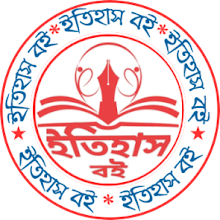HISTORY BOOK : ICSE & CBSE
CLASS : X
History Book : ICSE & CBSE : Class - X - an online history study portal. Our sole purpose is to provide free, high-quality history academic materials to students at the higher secondary levels.
This website provides important history questions for the students of ICSE BOARD with their brief and appropriate (to the point) answers. The questions and answers are prepared by following the syllabus (syllabus) of Ten Grade History.
In the new curriculum and question pattern, Multiple Choice Questions (MCQs) are emphasized. With this in mind, we have set up an Online Mock Test for each chapter in each category. Students can take this mock test to understand their abilities after reading and understanding each chapter. This is an automatic mock test system. Students can know the results as soon as they take the test. How much he scored, how many attempted questions are incorrect or the correct answers for them will be given then and there. No home tutor is required for this.
We are also attaching previous years question papers of Higher Secondary (HS) Examination in part of our website called Question Bank. Students can consult those for their preparation.
Experienced teachers, academics, and professors assist us in this endeavor by creating advice and study materials as best we can. Students take an active part in this work. I am also grateful to them.
-------------------
Ali Hossain,
Chief Editor, (Voluntary Service)
Itihas Boi (Class IX to BA), History Book : ICSE & CBSE
1) Asist.Teacher,
Boral, Rakhshiter More,
Kolkata - 700154
2) Life member of
Membership No. : L.M. 535
1, Woodburn Park,
Kolkata - 700020
-----------------------
Copyright & Owner:
K N Mondal
2002, Sampriti Apartment,
Kolkata - 700096


Comments
Post a Comment